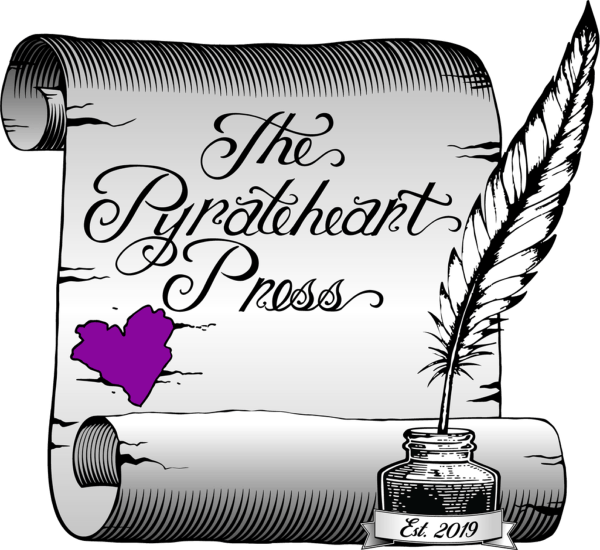Writing Tips
Writing Tips
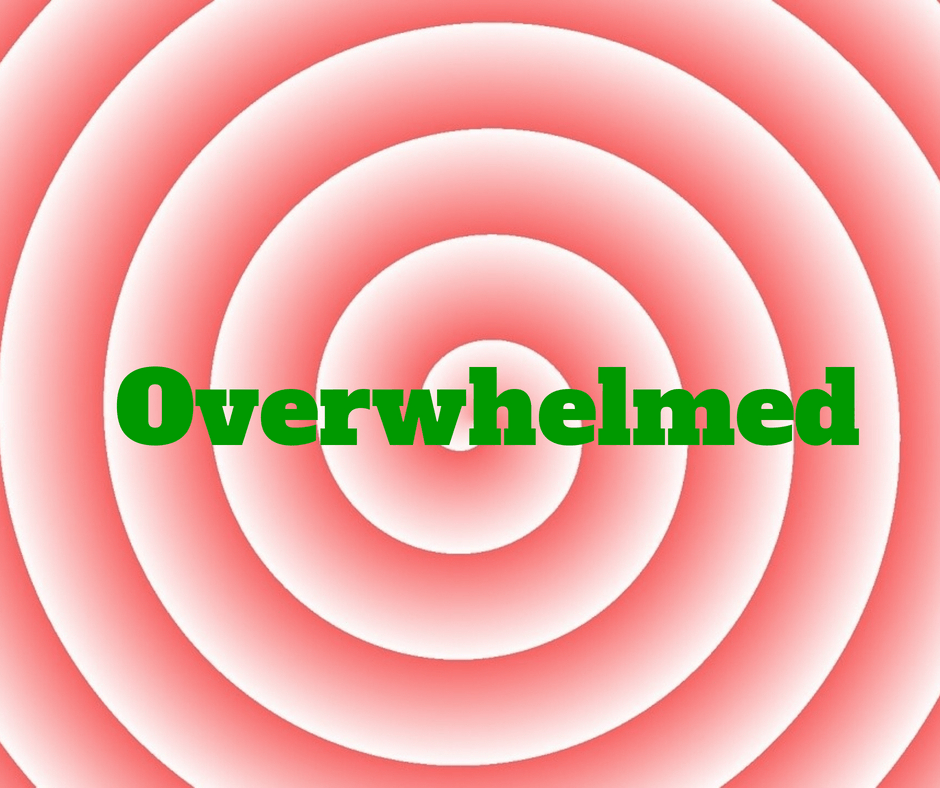
By R. Ross Whalen
•
23 Oct, 2020
It is so easy to become overwhelmed in the publishing business. Easy to find yourself ready to down vodka and tequila with each hand as clumps of hair fall off your head. I know, it is a little dramatic but not that far off. Many days I simply wanted to punch holes in the wall or sleep for a week. However, we must keep going no matter what. So, pour yourself that tequila, lick the salt - drink it down - then suck on the lime. Once you’re done then settle back down and go at it again. Is it that simple? Hell NO! Nothing ever is. However, you have to find a middle ground for your frustrations. My Wifesty and I recently found ourselves drowning in stress. And as you all know stress kills, often times literally. It can kill businesses, friendships, and marriages. It can kill your libido, your patience, and your creativity. The last is critical in a business firmly planted amongst the creative. In publishing you have to create. Period. On a deadline. More stress. The stress builds until you are overwhelmed beyond repair. Or are you? One of those items my Wifesty and I found causing such high levels of stress was a lack of clarity. We are partners. We are equals. However, we found ourselves operating along different lines of thought and this leads to conflicting actions which of course leads to conflict. I hate conflict. Try my best to avoid it. So, we had to figure a way to get ourselves on the same page so to speak. We settled down after a brief dust up and broke out a large piece of poster paper. Actually, it is a poster size post it note but why split hairs? We went through what we needed to do and wrote it down. We discussed each line item until we were both in agreement and set deadlines, we both agreed to. We divided up the work and started over. Believe me it helped clarify what when where and how. We did it again tonight. Clarity is worth its weight in gold when it comes to stress reduction. It is also easy to let the business creep into every aspect of your life. You have to set some limits. Give yourself some time to do nothing. Let your mind go and even if it goes right back to work don’t go back to the office. Let it be. Give yourself some time off each day to think about something else. Do something else. Believe it or not this will help you in business. Some of the best times for me when it came to figuring out my problems was when I was doing something else entirely. I used to polish my boots when I was in the military. When I would get pissed, I would pull them out and give them a polish. As my mind focused on the work it also percolated on what was giving me nightmares. The percolating on the back burner of my mind helped me tremendously. I use other methods now. I am a physical person. So is my Wifesty. We need physical activity. If we don’t get it, we get pissy. We ignore our needs. We become so focused on the goal we lose sight of everything else and then it simply escalates from there. Take a moment to breathe. The step back and look at what you really want. Then do the work of getting it down on paper and formulating a step by step plan to get you to where you need to be. Then be prepared to be flexible because no plan ever goes right. Things pop up. And by all means try not to take it out on your loved ones. They are the closest to you and of course they are the easiest targets. Remember they do love you and will forgive you but before they do, they might just use a brick to love you upside your head. Business is stress. Business is conflict. Business is deadlines and being 30 days behind and robbing Peter to pay Paul. Business can also give you a great deal of satisfaction, after you finish crying of course. And one more thing. Business isn’t writing. Handle your business. Get it done so you can write. And protect that time. Put everything else from your mind when you write. Then write. I’m Ross, The Editor-in-Chief for the Pyrateheart Press and I’m out.

By R. Ross Whalen
•
05 Oct, 2020
Once upon a time downloading a Mobi file (the kind used for Kindle books) was a simple affair. You chose the eBook you wanted, downloaded and it automatically appeared on your Kindle app or eReader’s library. All you had to do was tap it and read. Simple. Unfortunately, Amazon, the owner and creator of Kindle everything, is a predatory and proprietary organization. If you add the Kindle app to your phone you must register your email and any other information they want to be able to use the app. Same with the Kindle eReader. You can’t do anything until you do this step. Period. Once you have done this, they allow (allow mind you) you into their app. This is where it gets interesting. If you want to purchase an eBook from outside the Amazon’s Kindle store, you seem to be out of luck. If you do and try to open the new eBook all you get is a message the file can’t be opened and you see a lot of hieroglyphics type symbols in your file. This makes it hard for us. We publish eBooks in the Mobi format so those with Kindle eReaders and apps can read our eBooks on the platform they want. We use all the standard formats so our customers can read the eBooks on any device. Or so we thought. Before we publish our eBooks, we test them on eReaders to ensure they work and look good. Some of the free apps don’t work so well so we avoid them. We use the Kindle app for Kindle eBooks and Play books from Goggle for Epubs. PDF’s can be read on too many platforms to worry about. If you have the Kindle app on your phone and you want to use it to read eBooks from another source other than the Kindle store, there is a way to do this. It takes a bit but here is the process and we used our recent publication of Finding Her Voice to demonstrate this for you: 1. First thing is you have to discover what the email address Kindle has assigned to you. Yes, Amazon and their Kindle app assigned you an email address without your knowledge. 2. This email address is located inside the app in the Settings section. To find this, open the app and look to the top left-hand side of the screen. You will see three horizontal bars there, sometimes referred to as the “hamburger.” Tap them then scroll down to settings.

By R. Ross Whalen
•
01 Oct, 2020
As you can imagine, I get quite few requests from soon to be authors on what is the best way to write a book. Many want step by step instructions on the best way to write a book. This left Yvonne and me in a bit of a quandary. I have been doing this now for over five years. 5 years at an average of 50 hours a week times 52 weeks a year equals 13,000 hours. The minimum to be considered an expert is 10,000 hours. So, I am technically an expert. Bull s*^t! I’m no expert nor are most of the so-called experts out there. The few I consider experts are the ones who wrote the books we all love and the ones who marketed them well enough, we found them. These are the experts worth listening to. And even then, you have to take what they say with a grain of salt. What worked for them doesn’t mean it will work for you. Writing like Hemingway won’t make you Hemingway. However, I have made this point again and again and still budding authors ask us for a game plan. A step by step to craft a novel. Most of them dream of becoming the next J.K. Rowling or George R. R. Martin and I don’t blame them. Who wouldn’t? Yvonne and I talked this over time and again. I didn’t want to do this. However, the requests continued. Yvonne decided we would do it. Do it in our own way. Which I am surprised doesn’t pass muster for the rest of the writing community. Which is good. Means we are being authentic. This is the link on our website where we post our Writing Tips. https://www.pyrateheartpress.com/writing-tips36d7ed5e. This will lead you to the blogposts we have written on writing and ask for your email so we can send you a copy of our list of writing tips. Yes, tips. We want you to be authentic too. Take what we say with a grain of salt too. Use it to find your own way. Take what we show you and improve on it. Make the process yours and yours alone. When you research the way some of the world’s best authors did their process you will laugh. One didn’t start until after lunch and only wrote standing up. Others isolate themselves and don’t come out until they are done. The list goes on and on. Miranda Cummings, the author of Penelope’s Melody and co-author of The After Effects of a Good Time only writes her erotica wearing lingerie. Puts her in the mood she tells me. She also writes in what we call free form. She doesn’t outline anything, nor does she create character sheets to develop her characters. Says it stifles her creativity. This is the complete opposite of Lillian St. Chyr, the author of Fem’s Final Fix and The Librarian’s Tale. Lilly charts out everything. She crafts her characters first. Lillie likes to know her characters before she decides what she wants to do with them. She makes lists. Their physical appearance, their personality, their flaws, etc. Once she has this done, Lilly will outline the plot point by point. Look for holes before she has even written a single word. My other authors have their own method, their own process. These two are the extremes. Most fall between the two somewhere. When we developed the writing tips, we decided to craft them towards the first timers. The ones who are looking for guidance because they don’t have a clue. Here is a sample from the Tips: 1. The Brain Dump. This is a big one. It’s important here to not worry about structure, such as chapters, definitions, or even grammar. The idea is to document everything pertaining to your idea. Just get it out. If you are a hand writer, get a notebook and start writing things down. If you are a laptop or desktop writer, create a file and just get it in there. If you are writing a fictional story don’t think about plots, story timeframes, characters, story locations or specifications, etc. – just write. The purpose here is to get everything documented. Take your time and be thorough. This is good advice for first timers. Get what you want out of your head. Don’t think about anything. Just write. If you find yourself writing an outline or plot line instead of the book, then keep going. Let it flow. If you find yourself writing nonstop until you have a hundred thousand words, then so be it. If you can only write about the characters, then do it. Let your mind go and your fingers write. Believe me, it will all come together. When you write don’t worry about anything else. Just write. I’m Ross, The Editor-in-Chief at The Pyrateheart Press and I’m out.
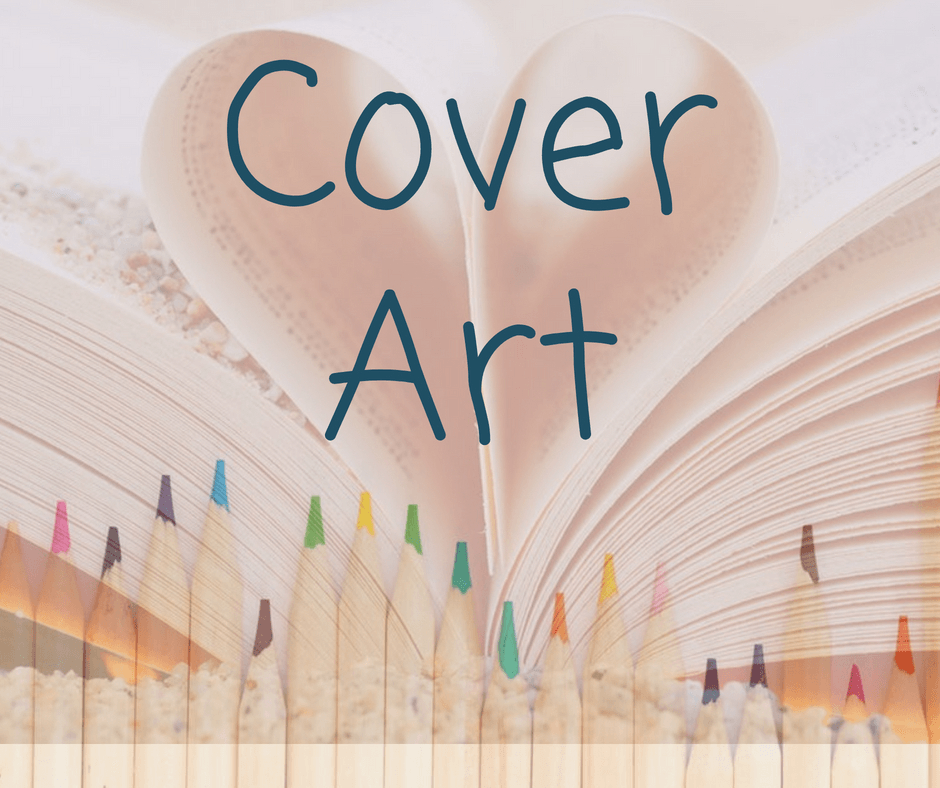
By R. Ross Whalen
•
15 Sep, 2020
Cover Art is a fairly new concept in the area of published manuscripts. Well, fairly new is a slight misconception. Book covers and cover art became something publishers realized they could use to sell books sometime around 1820. In the nineteenth century books went from covers designed to protect the pages inside to sales tools. This was due to the industrialized mechanisms used to print books and the materials used to bind them. Gone were the heavy leather or vellum used to wrap around a book in a binding. Instead, printers and publishers were presented with a blank slate of paper to create a means to catch the reader’s eye. To draw them into piking up the book and looking inside. Though it seems the book cover didn’t really come into its own until the turn of the century. The twentieth century. Here’s an example:
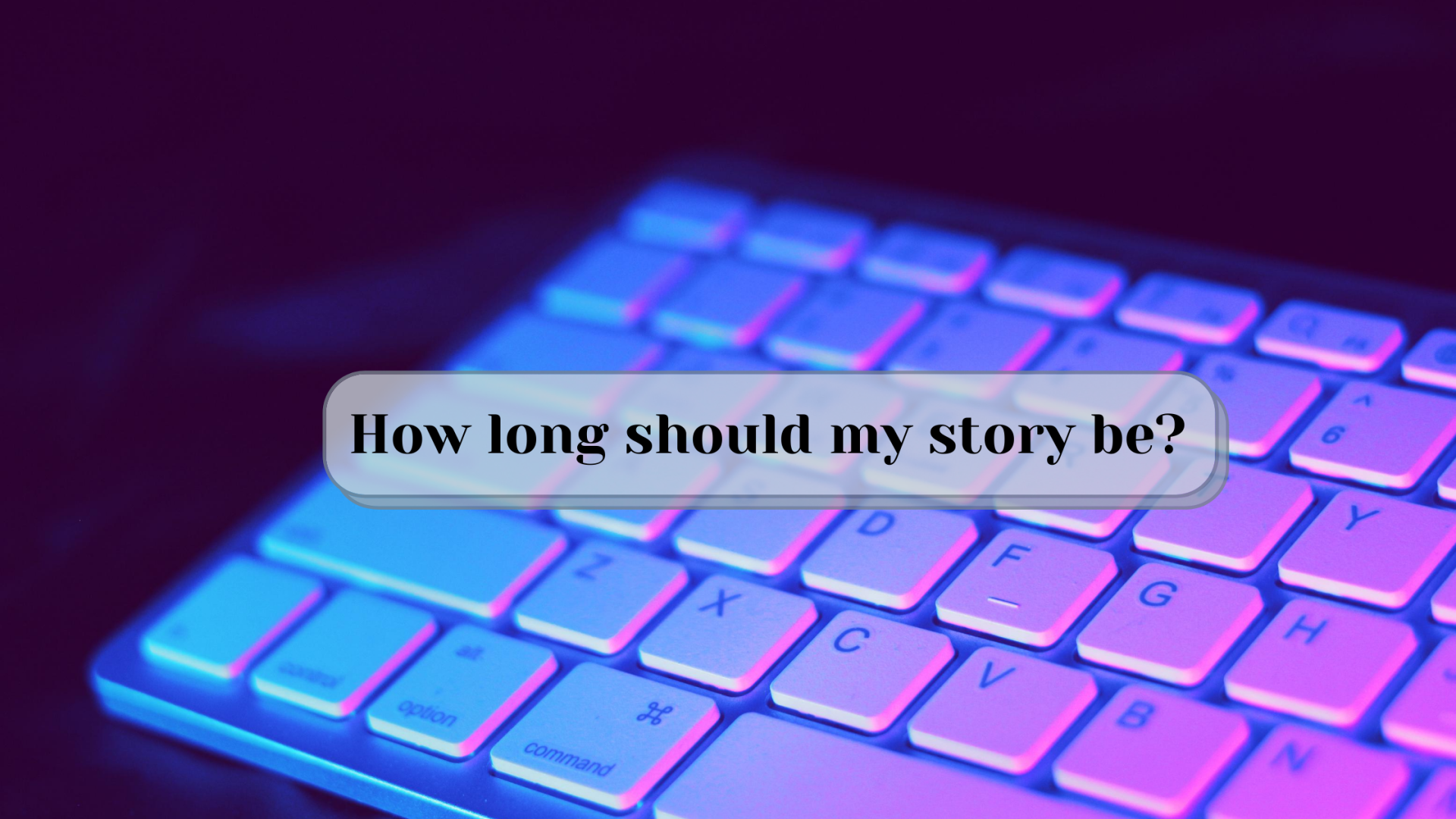
By R. Ross Whalen, Editor
•
02 Sep, 2020
I have been asked this question too many times to count. My normal answer is: “I don’t care. It should be as long as it takes to tell the story properly.” Sounds harsh, huh? Well, it is, and it needs to be. Too many people focus on story length. Now don’t get me wrong, if you set out to write a short story, then it should be a short story. A short story is listed as being somewhere between 1,000 and 10,000 words but this is often debated. Some believe a short story ends at 7,500 words. In truth the story length ends where the publisher needs it to end to fit inside their anthology or book or magazine. Here is a list of word counts for various book length types: Short story – 1,000 to 10,000 Novelette – 7.500 to 20,000 Novella – 20,000 to 50,000 Novel – 50,000 to 110,000 Epics – 110,000+ Epics have become an entirely new category thanks to writers like George R. R. Martin, of Game of Thrones fame, who write epics and do so, well. I often tell my authors to let go. And I mean it. Let go of everything and tell your story. If it needs to be trimmed, we will catch it in the editing process. The same with adding content. If the story lacks and needs some type of boost, we can add it in the editing phase. So many get caught up about word counts. As I said before - I don’t care. Let me give you an example. Recently I was presented with the second book in the Cheyenne series titled The Rescue of Rhonda. It was a whopping 140,000 words. Did I care? No. the first thing I did was read it. Read each chapter as a separate entity. Let the story speak for itself. In the process of introducing myself to the story I noted there were several places where the story lagged. This was due to an overabundance of information most readers don’t care about. How many of you care about the minute details about a jet? I removed these details to enhance the story. Up the speed and tempo of the story itself. Did this in chapter after chapter. Removed several chapters which didn’t have anything to do with the main story. These were distracting and unnecessary. By the time I was done, the story had been whittled down from 140,000 words to 77,000 words. Did I do this with the intention of creating a work that fit into a specified word count? Nope. I did it because it enhanced the story. The story is everything with me. If something needs to go – it goes. Period. If it needs to be added, we add it. Word count be damned. Which is the attitude I encourage with any author. I don’t do this with writers. Writers have to be conscious of word counts in everything they do. Take this blog. Blogs need to be somewhere between 500 and 1500 words. Why? It’s because somewhere someone did some research and discovered readers like this amount of words in blog posts. They like pictures too by the way. Just saying. Anyways, writers write to fit the needs of their clients. Authors don’t. They need to pay attention to their story. The story is all important to the author and to me as a publisher. Is it a good story? Will it sell? If it is a good story but won’t sell, I sometimes will publish it just so it is out there. However, I am a businessman so whether or not I think a story will sell does play a part in my decisions to publish a book. Word count doesn’t. I want a story, not a collection of words built to fit into someone’s else’s idea of what length a novel should be. There you go, my ideas about word counts. I’m Ross, The Editor-in-Chief at The Pyrateheart Press and I’m out.
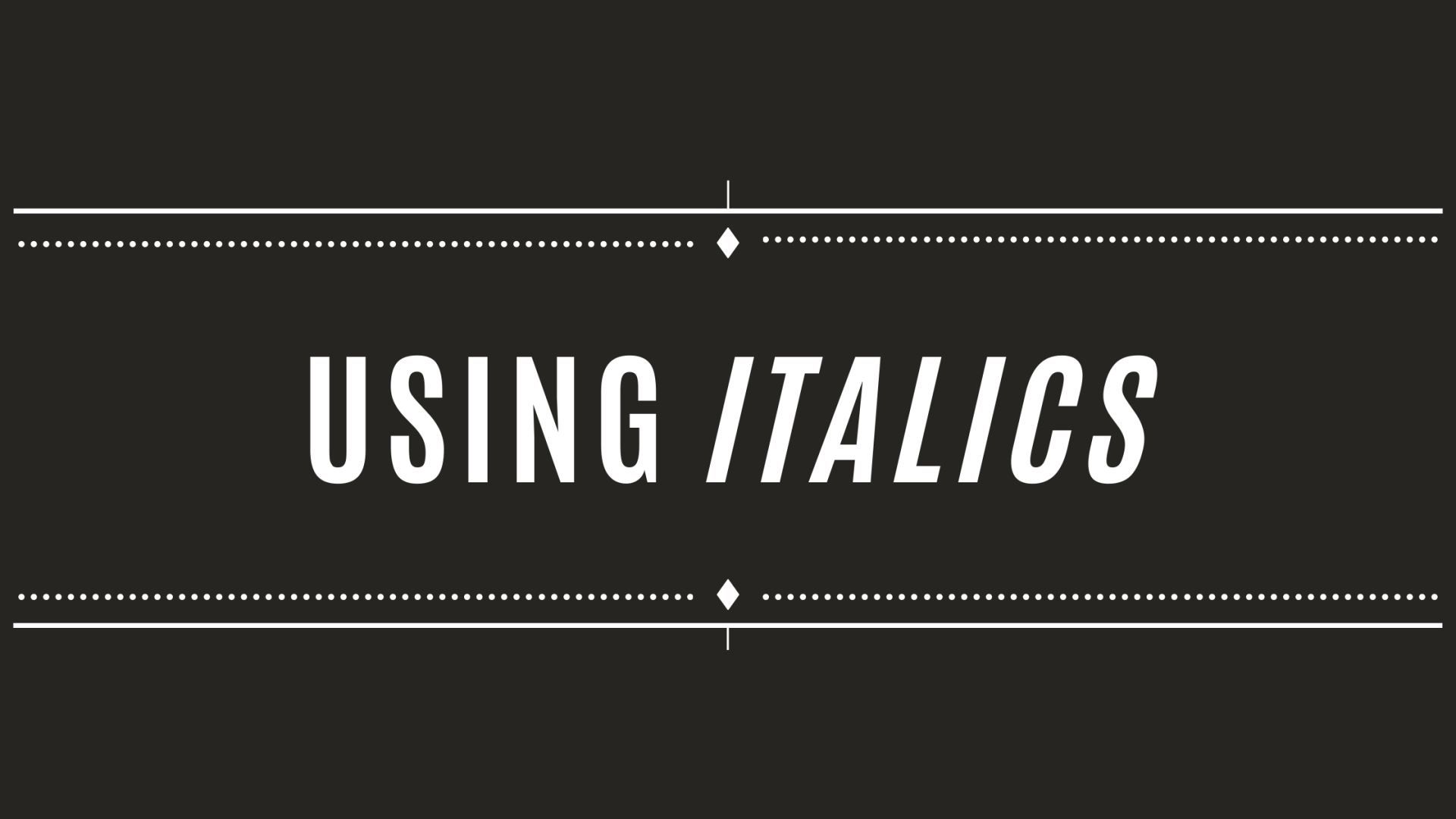
By pyrateheartpress
•
17 Aug, 2020
Italics have become something of a standard in writing these days. Everywhere I look I see italics being used. Unfortunately, I don’t subscribe to many of the usages of italics in writing. I find it a lazy man’s means of writing. Let’s take a look at italics. Italics are in fact simply handwriting. Most of […]
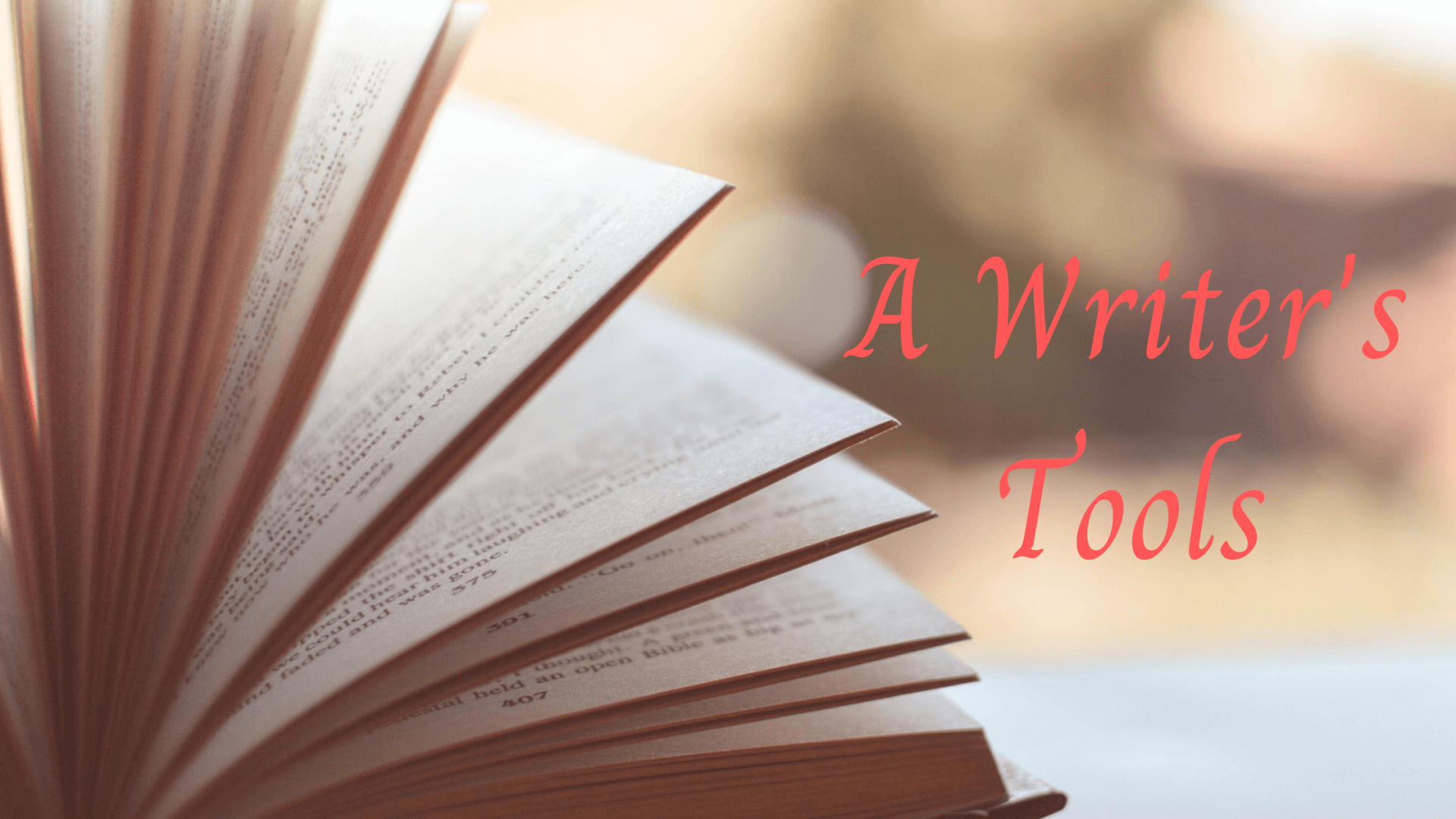
By pyrateheartpress
•
12 Aug, 2020
I have seen many references about what a writer needs to write. As in tools such as Scrivener or the Hemingway App or some of a dozen or more such programs that are extolled as the next best thing to sliced bread. Now don’t get me wrong, each of these programs have a lot of […]

By pyrateheartpress
•
10 Aug, 2020
This is a common question for most first-time authors. Invariably, they have amazing book ideas. However, when they sit down to write, they freeze. They stop because they don’t know what to do. Here are some quick “go to tips” to help you get started. The Brain Dump. This is a big one. It’s important […]

By pyrateheartpress
•
07 Aug, 2020
In my last blog post I talked about some of our writers. Specifically, who gets what when I have an idea. Or rather when I have an idea which requires sex scenes in the story. In this post I want to talk about who gets what when I have an idea which requires supernatural scenes. […]
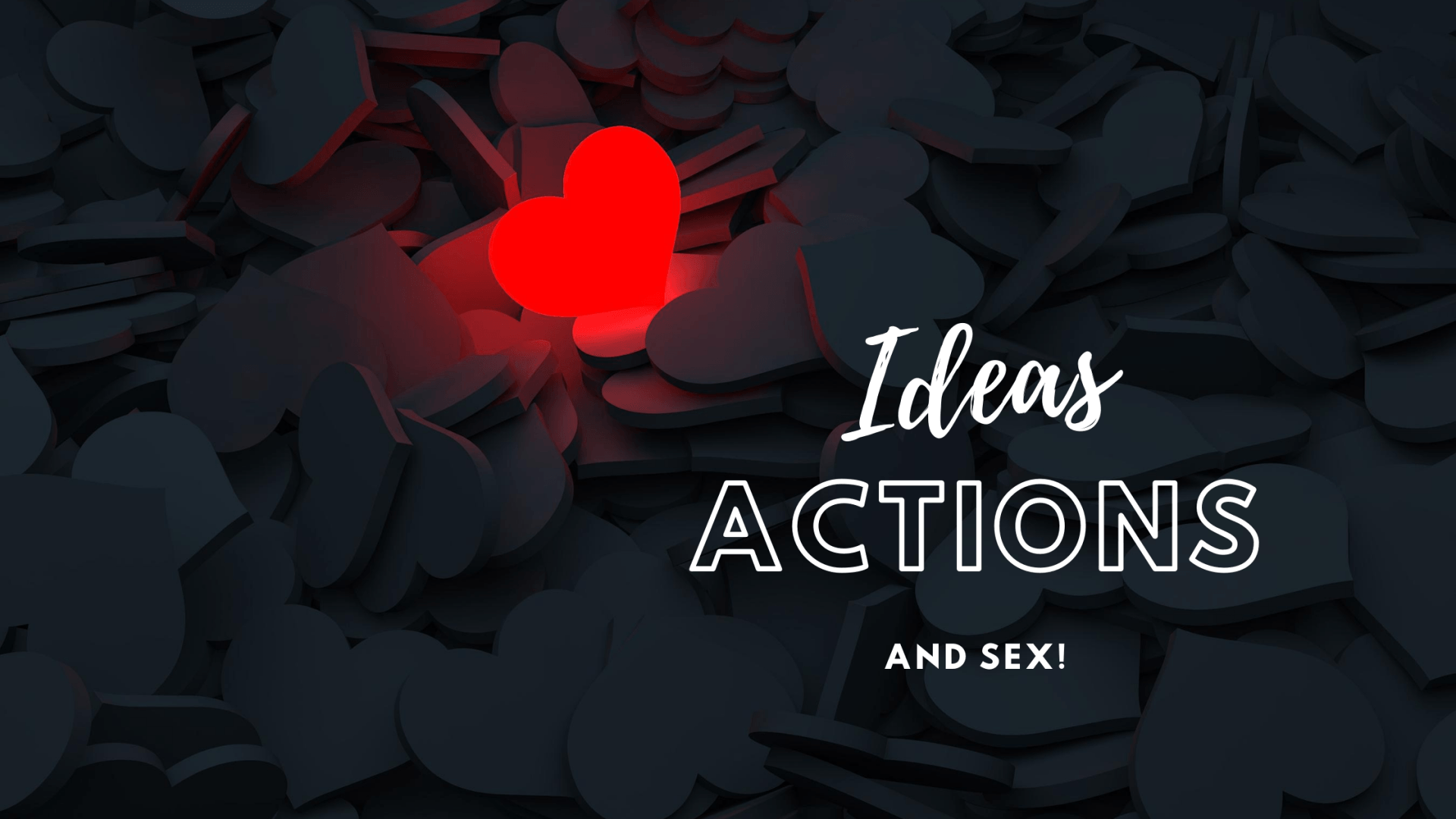
By pyrateheartpress
•
05 Aug, 2020
The other day I was working in my yard. An excellent way to let my mind go sideways. To let it go anywhere it wants really. See, I needed a break. We have two books about to be launched plus the podcast and this blog. Then there are several audio projects we are working on […]
Receive our tips sheet
Thank you for your interest.
CLICK HERE to downlaod the Writing Tips sheet.
Please let us know how we can help you further.
Oops, there was an error sending your message.
Please try again later.
Please try again later.
